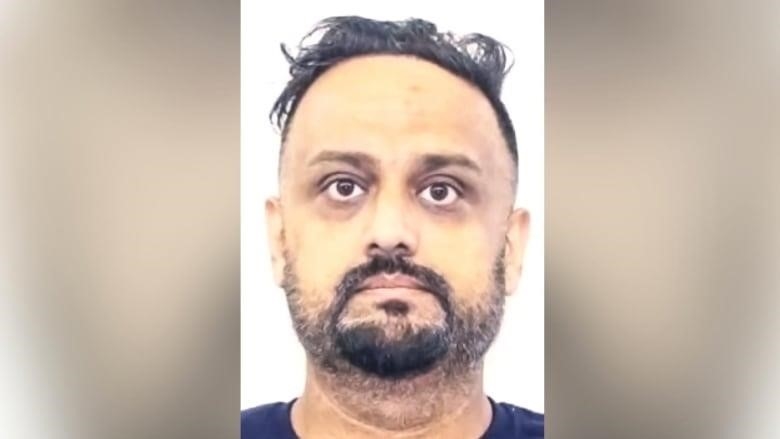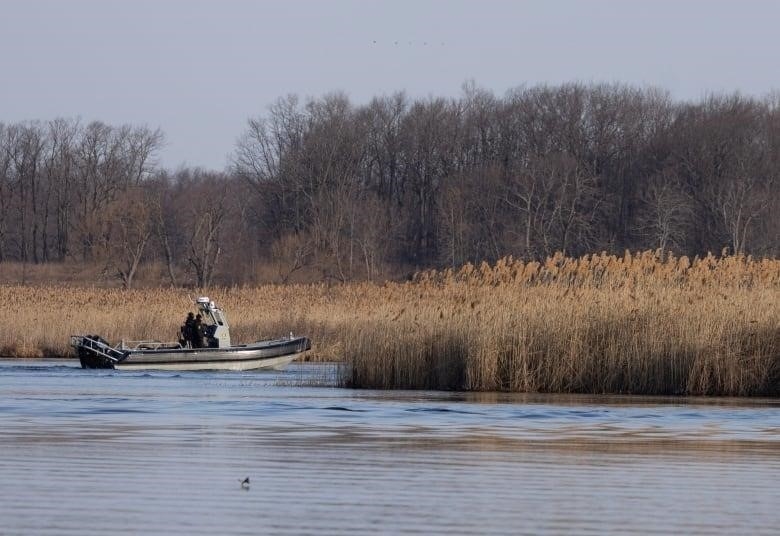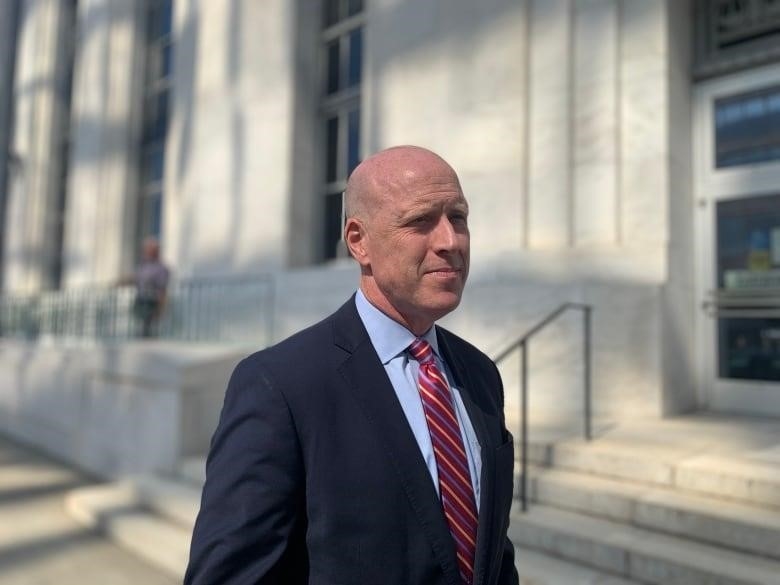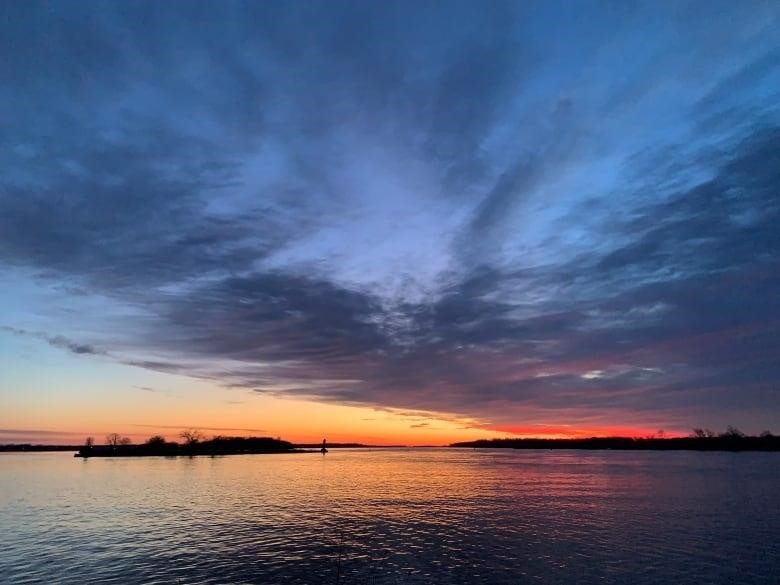
A man from India who lived in Brampton, Ontario, pleaded guilty in a U.S. court to 9 counts of alien smuggling
On Friday, an Indian citizen from Brampton, Ontario, pleaded guilty to smuggling people in a U.S. federal court. He was part of a network that may have moved hundreds of people from India across the Canada-U.S. border.
Simranjit (Shally) Singh, age 41, pleaded guilty to six counts of smuggling aliens and three counts of conspiring to smuggle aliens in front of Judge Mae A. D’Agostino in Albany, New York.
Singh showed up in an orange jumpsuit with short sleeves and the words “ACCF Inmate” on the back. “ACCF” stands for Albany County Correctional Facility. He had salt and pepper stubble on his cheeks and chin and wore glasses with black frames. A small tattoo was behind his left ear, and another was written down the length of his left forearm.
At the hearing, neither Singh’s family nor his friends showed up.
Singh admitted in his plea deal that he helped people sneak into the U.S. from India by flying them to Calgary, Toronto, and Montreal and then driving them to Cornwall, Ont.Singh then moved the Indian nationals by boat across the St. Lawrence River through Akwesasne, a Haudenenesaunee community that sits about 120 kilometers west of Montreal on the border between Canada and the United States.
The U.S. government says Singh bragged that he brought more than 1,000 people from Canada into the U.S. illegally.
According to court records, the case against Singh was based on four failed attempts to smuggle drugs across the St. Lawrence River between March 2020 and April 2022. The evidence against Singh came from surveillance, Facebook messages, and people.
Singh was a broker who helped mostly Indian people sneak into the U.S. illegally. He charged between $5,000 and $35,000 per person. Then, he paid people in Akwesasne between $2,000 and $3,000 per person to take them across the river through the community’s land.

Singh’s arrest has nothing to do with the deaths of eight people, including four Indians, who were thought to be migrants and died on the St. Lawrence in March.
But Singh’s routes and methods are similar to those used by the group that tried to bring a Romanian family of four people into the U.S. and killed them all.
Singh admitted in the plea deal that he used locals to put Indian nationals on boats that left from Cornwall Island in Akwesasne and went across the water to the southern shore of the St. Lawrence River. There, they were picked up in cars and taken to nearby motels in New York state.
The Indian and Romanian families who died in March were also traveling this way.
A cog in a bigger networ
Singh’s lawyer, Lee Kindlon, told CBC News after the hearing that his client probably lied when he said he smuggled 1,000 people across the border. Kindlon said that Singh was only a small part of a bigger network.
Kindlon of the Kindlon Law Firm in Albany said, “We hope that through sentencing, we can show that his role in this larger scheme was actually quite small.”
“I don’t know how much he knows about the larger network as a whole. Everyone answers to someone else, but I’m not sure he knew or understood who was at the top of the food chain.

Singh also had depression and anxiety while he was in jail, Kindlon said.
On December 28, 2023, Singh will be told what his punishment will be. He could get between five and fifteen years in prison and be sent back to India.
Kindlon said, “He’s always been sorry that he let this whole thing get to him.” “Admitting guilt here is the first step toward redemption and, in the end, accepting responsibility and punishment.”
Evidence collected by U.S. authorities shows that Singh took advantage of poor and addicted Akwesasne people as part of his operation.
Singh was facing deportation from Canada when he was arrested and sent to India. He came to Montreal from India with his then-wife and one child in 2010 and claimed to be a refugee. Then his mother came with his other child and also asked to be a refugee. Court records show that all five were turned down in the end.
The Indian Consulate wouldn’t give them travel documents, so the Canadian government couldn’t send them back to India.
Singh tried to stay in Canada after he got married to his second wife, who paid for him to stay there. When he was caught in the summer of 2022, that application was still in the works.
During the COVID-19 outbreak, they were brought in illegall
Singh was charged by the U.S. because he failed to bring three Indian citizens into the country illegally in March 2020, just before the COVID-19 pandemic shut down the border.
In this case, he used a single mother of two from Akwesasne who had been through a lot of trauma and was worried about the costs of caring for one of her kids, who had to stay in the hospital for a long time, according to court records.
The woman is said to have picked up three Indian nationals after they crossed the St. Lawrence River and driven them to a motel on the eastern border of Akwesasne, which was being watched by U.S. Border Patrol.

The next day, agents stopped her car after she picked up the three Indian nationals who had tried to run away from the traffic stop. The woman also tried to run away, but she ended up hitting four Border Patrol cars.
In another case, a family in India is said to have paid Singh thousands of dollars in late winter 2021 to sneak a family member into the U.S. Singh took the person to a motel in Cornwall, Ontario, Canada.
U.S. records show that Singh bragged about smuggling over 1,000 people and told the Indian man that he had nothing to worry about.
The Indian national got on a boat with three other migrants on March 4 and landed on a part of Akwesasne in the United States that is run by the St. Regis Mohawk Tribal Council.But there was nobody there to pick them up.
When they found three of them, the tribal police called the U.S. Border Patrol. The fourth was found in a Massena, New York, motel.
